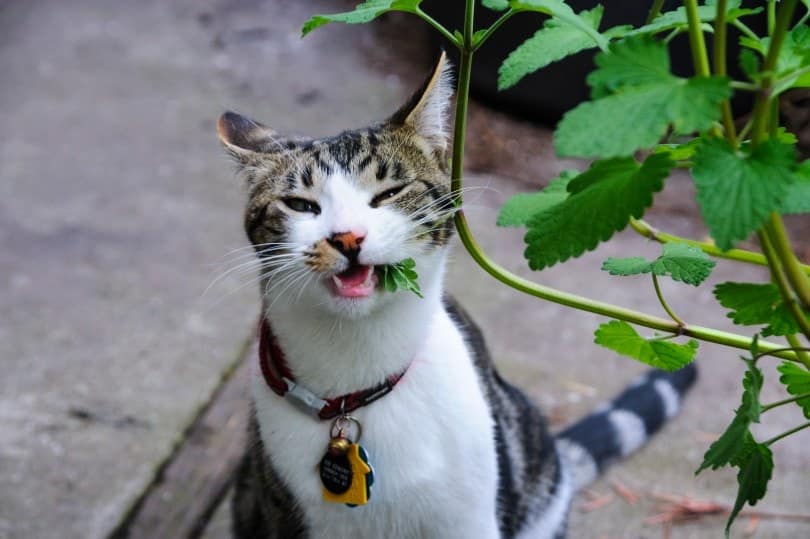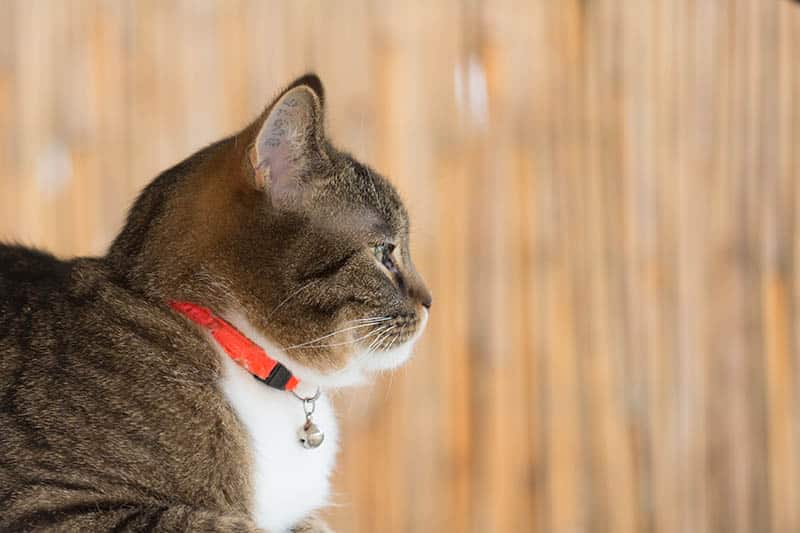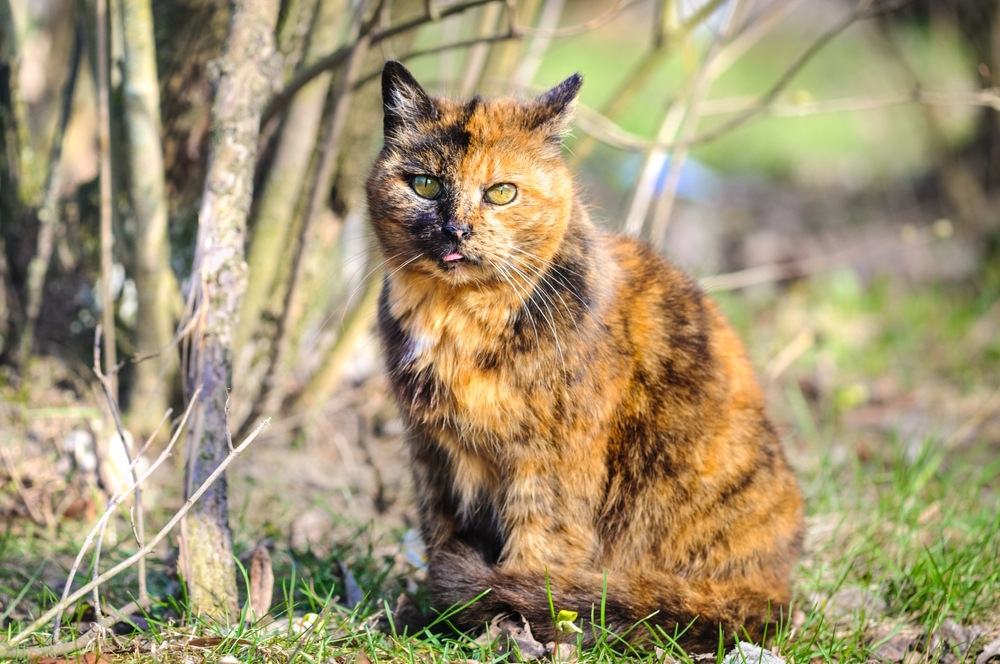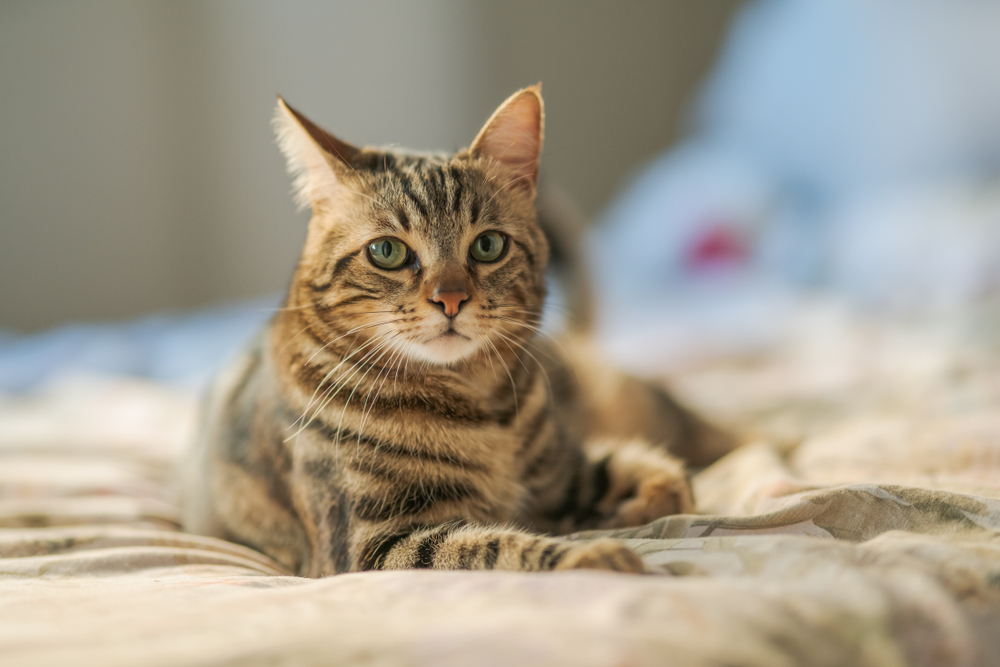Click to Skip Ahead
Every cat owner believes that cats are “supposed” to love catnip, but what if your cat doesn’t seem to care for it? Is there something wrong with your cat? Fortunately, there’s no need to worry. Some cats are simply not attracted to catnip. Let’s explore why your cat might not like catnip and why it isn’t something to worry about.

What Is Catnip?
If you have a cat, there’s a good chance that you’ve given them catnip at some point. Catnip is a plant that is part of the mint family, and its scientific name is Nepeta cataria. The active ingredients in catnip that cats are attracted to are a group of naturally occurring compounds, termed as nepetalactone. These compounds interact with cats’ sensitive smell receptors and stimulate their brain. Most cats will respond to catnip by rubbing their face in it, rolling around on the ground, or even chewing on it. Some cats may seem to be affected more strongly than others and may even become aggressive.
While the effects of catnip only last for a short period of time, some cats will return to the spot where they found it and roll around in it again. For many cats, catnip is a harmless way to have fun. However, there is a small percentage of cats that do not respond to catnip at all. If your cat does not react to catnip, don’t worry—there is no evidence that there is anything wrong with them.
The attraction to catnip is hereditary, and roughly 2⁄3 of all cats inherit the attraction. This means that roughly 1⁄3 of all pet cats are not attracted to catnip and have no behavorial response to it. Since this is entirely genetic in nature, there’s nothing you can do to “force” an attraction to catnip. But it also means that there’s nothing wrong with your cat’s sense of smell.

How Does Catnip Affect Cats?
When cats that can respond to catnip smell the plant, they experience a temporary high. They might run around, roll on the ground, or meow excessively. Some cats become so stimulated that they may even drool. The effects of catnip typically last for about 10-15 minutes before your kitty enters a state of fatigue. During this time (which lasts about 2-3 hours), they do not respond to catnip and are likely to rest or nap. After this period, they may respond to catnip once again.
Not all cats react to catnip, though. As mentioned earlier, whether a cat responds to catnip is hereditary. If your kitty doesn’t seem interested in the plant, there’s no need to worry.
Why Does Catnip Affect Cats Differently?
For those cats that do enjoy the effects of catnip, there is a scientific explanation for why they act differently. When a cat smells nepetalactone, it causes a temporary state of euphoria. How each cat responds to catnip varies, though. Catnip may stimulate some cats but sedate others, and the signs vary from cat to cat. However, catnip isn’t addictive, and doesn’t come with withdrawal signs. In addition, cats don’t build a “tolerance” for catnip from repeated exposure to the plant. However, cats do need to be around 6 months–1 year old for catnip to elicit a response from them (assuming they are sensitive to it).

Catnip Alternatives
If your cat doesn’t like catnip, there are a few alternatives you can try. One is silvervine (Actinidia polygama), which is a plant native to Asia. It’s similar to catnip in that it can cause a euphoric response in cats, but it’s considered more intense than catnip. You can find silvervine sticks or powder at most pet stores.
Another option is Valerian (Valeriana officinalis), which is often used by humans as an herbal remedy for stress relief. It has a similar effect on cats as catnip does, and sometimes, cats that don’t respond to catnip do respond to Valerian.

 Summary
Summary
Not all cats respond the same way to catnip, and some cats don’t respond to catnip at all. If your cat doesn’t enjoy catnip, there’s nothing wrong with them. The attraction to catnip and the ability of the plant to elicit a behavior response in cats is hereditary. No harm will come to your cat from living a catnip-free lifestyle. There are a few alternatives that you can try if you’d like, including silvervine and Valerian.
Featured Image Credit: bmf-foto.de, Shutterstock










